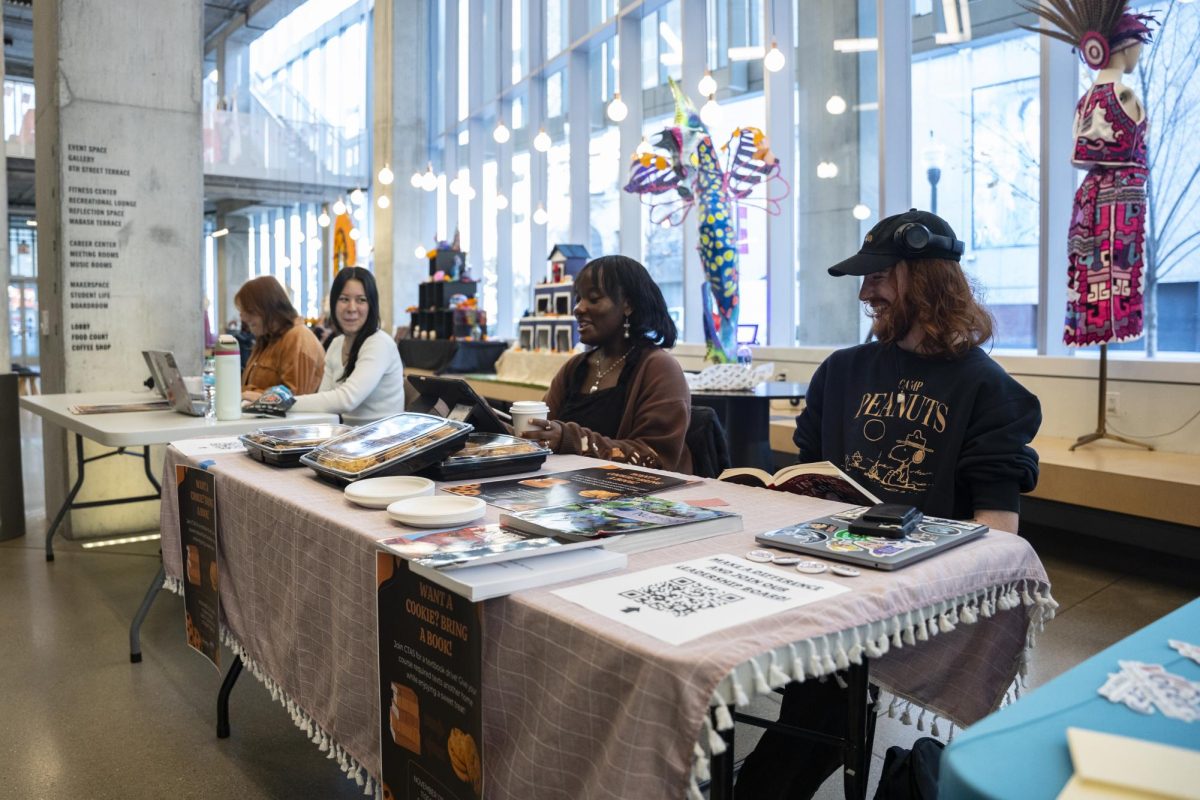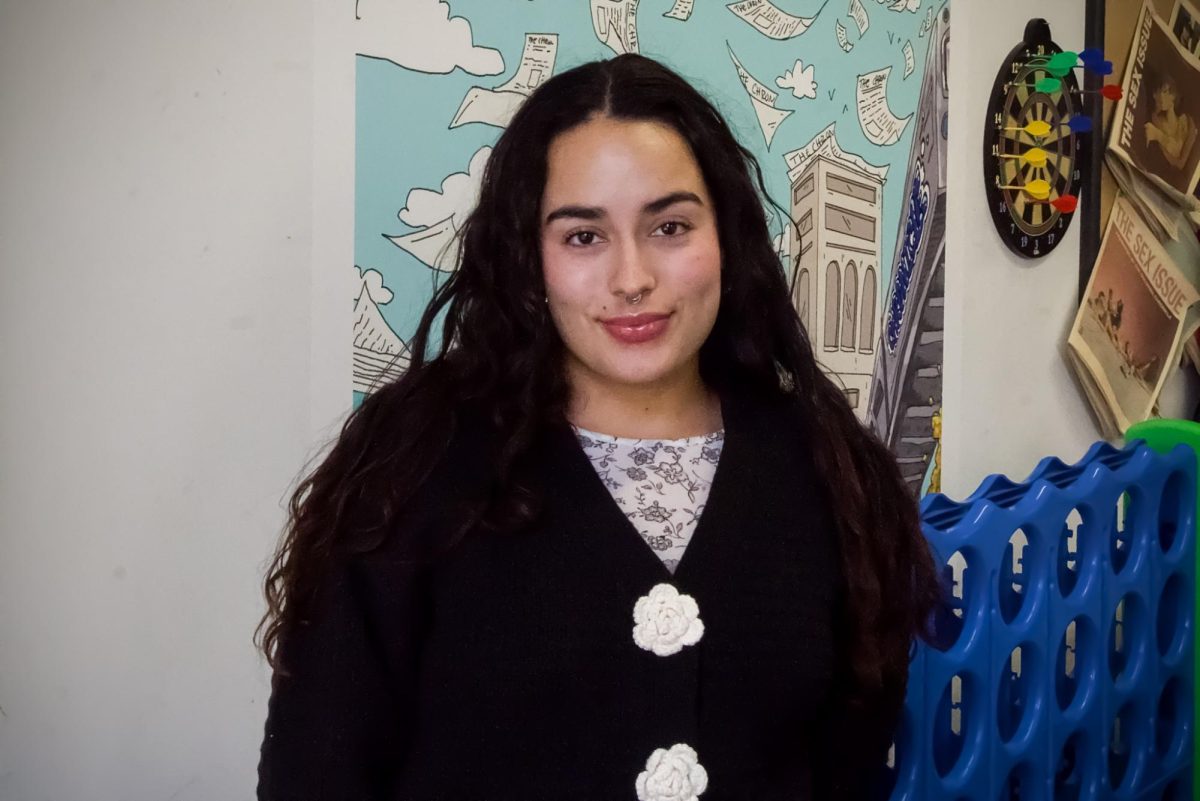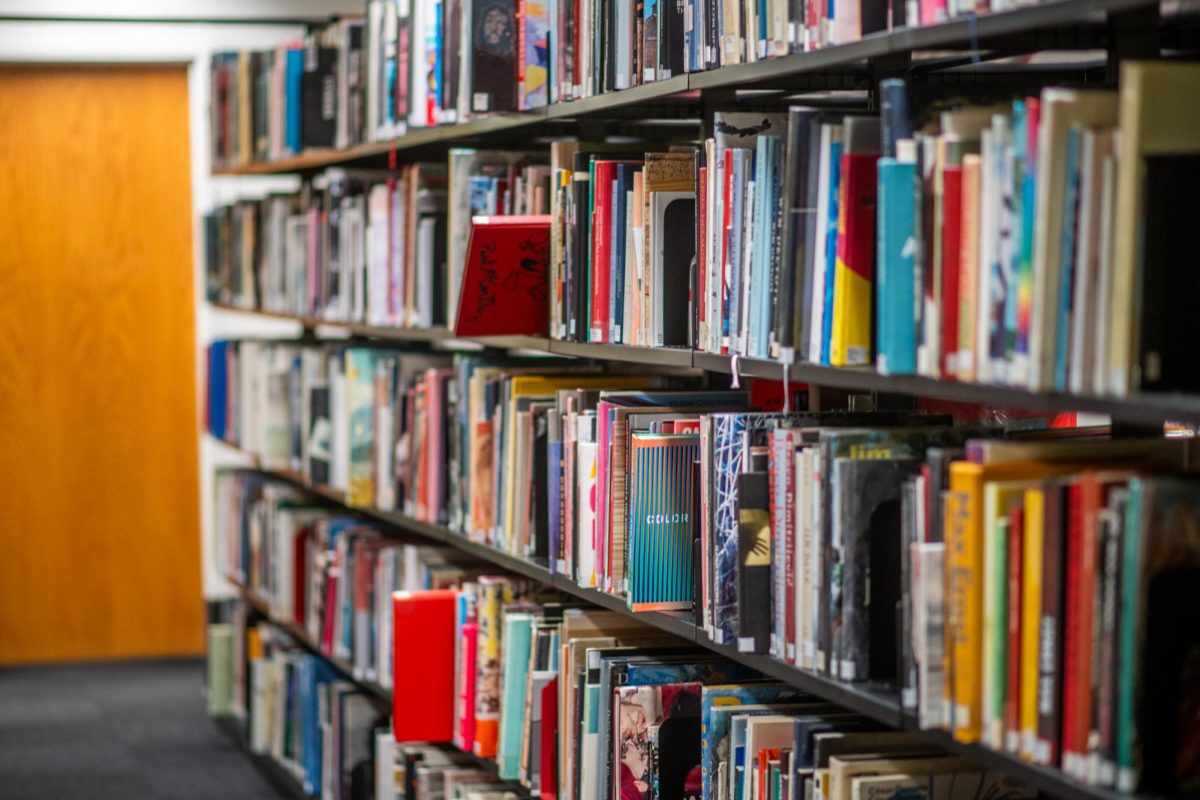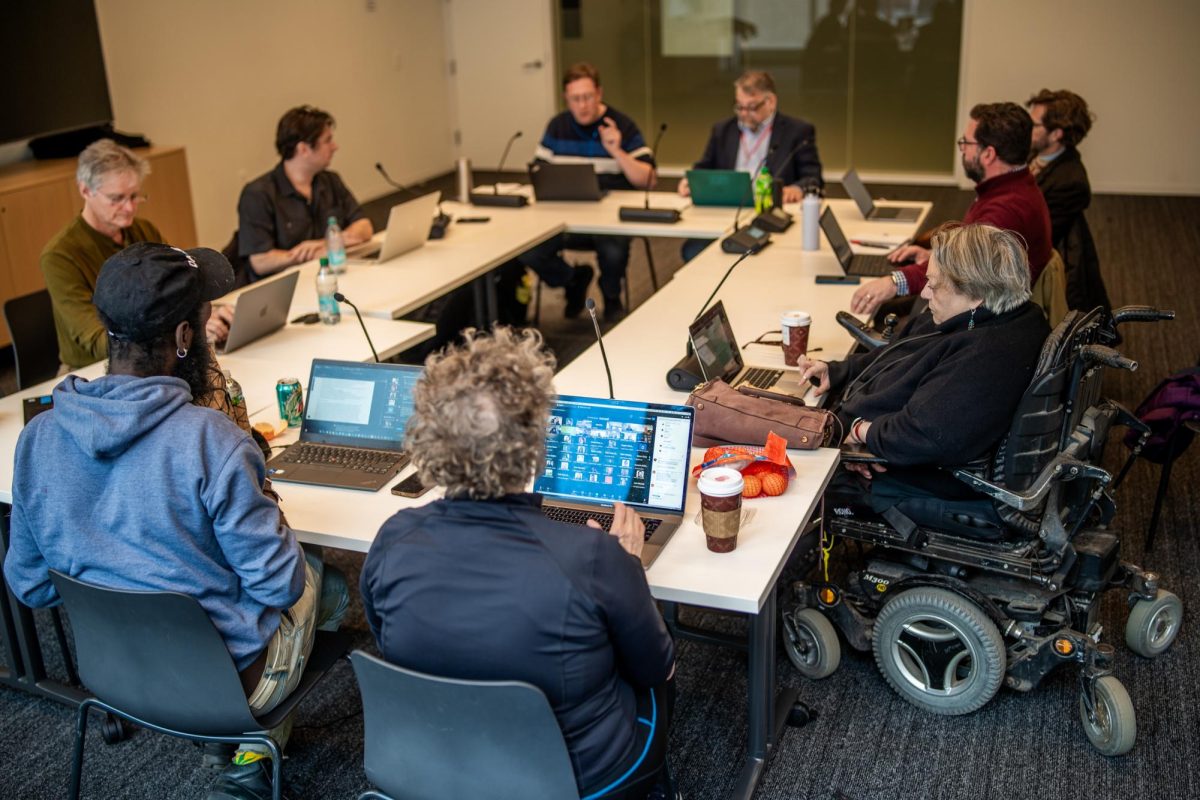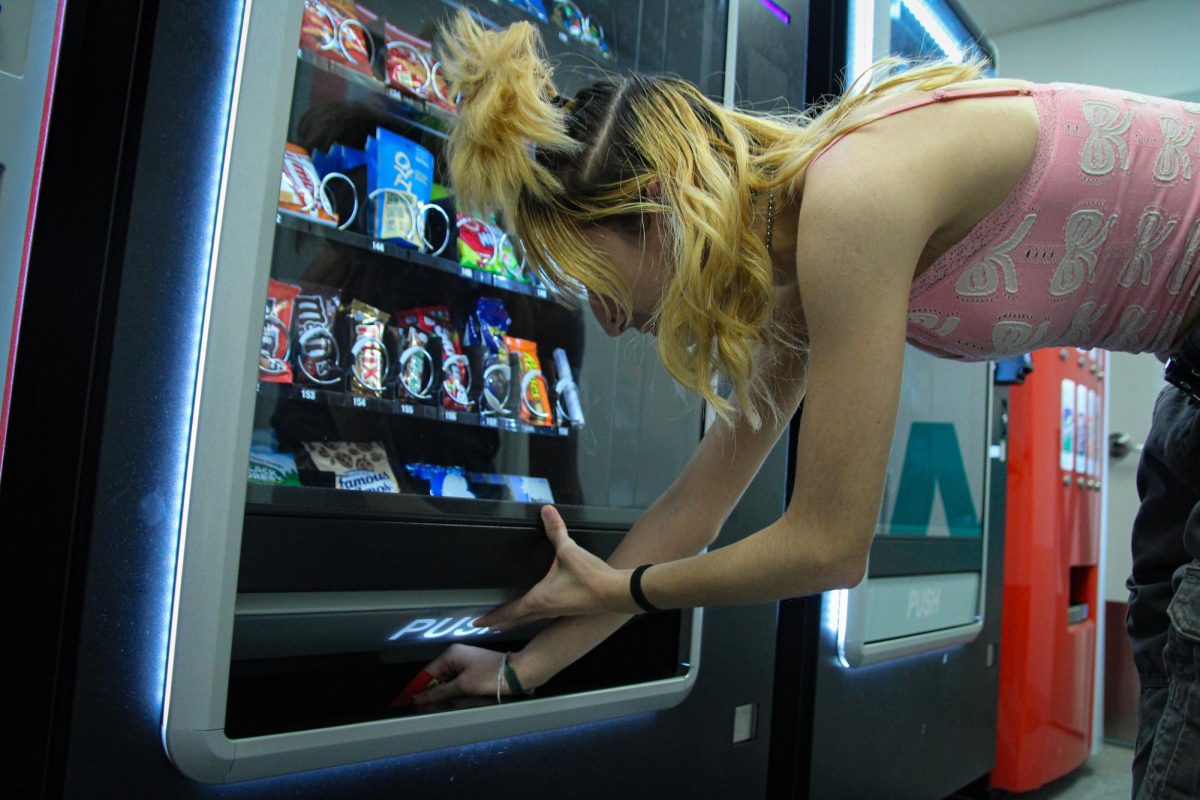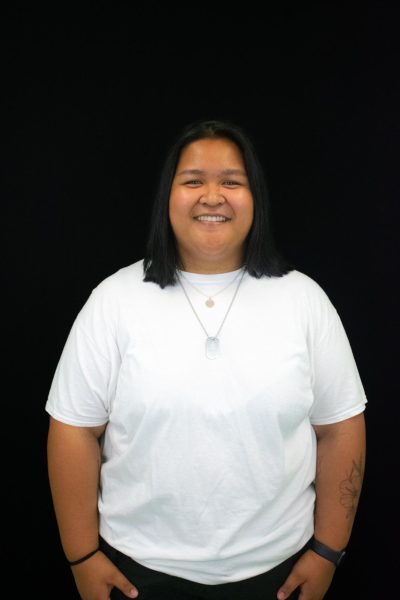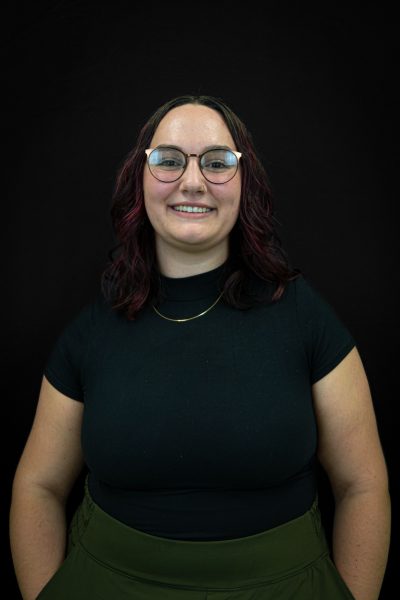Kenli Mays, a senior fashion studies major, said she felt like she needed to switch her degree plan last semester because she could not afford the rising cost of Columbia’s tuition and fees. She said that the increases—15% in three years— put significant pressure on her financial situation and educational aspirations.
“It has made it a little difficult and it does kind of restrain some students from really trying to reach that goal, curriculum-wise,” Mays said. “It’s holding people back from wanting to pursue what they actually want.”
Columbia is increasing tuition 5% for continuing students next school year, and fees will also increase by 2%, as the Chronicle previously reported.
The estimated budget released by the college for the 2023-2024 academic year for full-time undergraduate students recommended that students reserve $900 for books and supplies. For next year, The college recommends that students budget $950 for books and supplies.
According to a study from the Education Data Initiative, the price of textbooks has increased by an average of 6% each year, doubling every 11 years, and textbook prices are rising roughly 3 times the rate of inflation.
Additionally, 65% of college students skipped buying textbooks because they were too expensive, the study found.
Mays is one of multiple students that told the Chronicle that they often look for ways to get out of paying for required textbooks.
However, the college offers multiple on-campus resources to aid students in accessing textbooks.
Students can use the Columbia bookstore to search for required materials to purchase new or used copies or rent textbooks for the semester at a lower price.
The library also has 781 textbooks on reserve available for students.
According to Jennifer Sauzer, the Head of Access Services and Assessment, the library policy indicates that at least one copy of every required textbook over $40 be carried, “but if there is a high volume; sometimes you have introductory classes like history and film or something like that, where, if the use is there, we’re more than happy to add another,” she said.
So far this semester, the library’s physical textbook reserve has been accessed by students about 415 times. Sauzer said that this puts usage on track, as students checked books out from the reserve around 535 times in the Fall 2023 semester.
That fall was the same semester Columbia’s part-time faculty union went on strike for seven weeks, and Caleb McDermott, a junior photography major, said he noticed many students struggling to pay for required textbooks. This inspired him to start a student group focused on helping peers access materials and resources for classes called “Created to Achieve Success.”
Beth Ryan, a professor in the School of Business and Entrepreneurship, helped McDermott and a handful of students organize the club as part of a class assignment in his “Introduction to Management Entrepreneurship” course.
Kira Cooper, a junior arts management major, was also in the class and is now the head of marketing for CTAS.
She said that one of the club’s goals is to create a directory for students to find information on textbooks and materials on campus because “not enough people know about the resources here.”
Faculty and staff also have worked to create open educational resources for select math and writing courses, as the Chronicle previously reported. Open educational mathematics resources through LibreTexts and WeBWork are set to be used in math courses by the 2026 spring semester.
The first-year writing textbook was replaced on Aug. 15 with a free open source book that can be accessed through LibreTexts, as the Chronicle previously reported. This semester, the new online text has been used in the “Foundations of 21st Century Writing” course.
Although the open educational resources address the accessibility of textbooks, digital workbooks present a different problem.
First-year musical theatre student Mariah Howard said that the options to purchase the required textbook for “Meteorology 120” were limited. “Weather and Aviation I” costs $87.36 at Columbia’s bookstore, but is not available to check out at the library.
“I tried, but for this book, specifically, it had to be purchased through this specific website because it has all of the homework, all of the quizzes and all of the exams,” Howard said.
Dennis McGuire, the library director, noticed many students experiencing a similar problem to Howard’s. He said that there is currently no feasible solution that the library can offer for one user license materials as “we don’t have access to those.”
However, McGuire said that any digital resource not restricted by integrated work materials can be accessed freely through the library.
He explained that “there’ll be one user or three users or unlimited users, and if it’s a small class like six or 10 people, three users might be enough.” McGuire said that on occasion they have upgraded to unlimited users for larger introductory or general education classes when needed.
According to McDermott, CTAS cannot legally provide any online materials to students. “We don’t know if we can endorse that as affiliated with the school,” he said.
Digital textbooks are not the only problem, as there are also restrictions when it comes to physical copies. Although the library is equipped with at least one copy of every required textbook over $40, students cannot remove them from the building.
CTAS aims to overcome this limitation by offering a Lending Library in The Loft at the Student Center with textbooks that can be borrowed and brought home.
“We’re starting small with textbooks because that’s quite literally required for some classes, especially the gen ed courses,” McDermott said.
Although Beth Ryan is currently the CTAS faculty advisor, assistant professor in the School of Business and Entrepreneurship, Calid Bowen, took a special interest in their mission. “The library is great, obviously there’s everything you need there, but sometimes students might want to do their work from home or in different locations,” he said. “It just kind of gives them the option to do it a little bit more conveniently.”
Bowen recalled how stressful his own college expenses were, and appreciated the effort that CTAS was putting into addressing the ongoing financial struggle that students face.
“I think just making some small impact, whether it’s a handful of students or hundreds of students…I think the intention is there, and so, I think something good will come out of it eventually.”
Cooper said that CTAS has “big dreams” and knows that textbooks are just the first part of addressing the financial strain on students.
“It’s hard to think about the other expenses that come on top of the tuition. Textbooks, equipment, programs,” she said. “This is an arts school…There’s a lot of equipment and books and paint brushes, fashion materials, fabric, game programs, different software. There’s so much that you have to have on top of just tuition.”
Copy edited by Doreen Abril Albuerne Rodriguez


